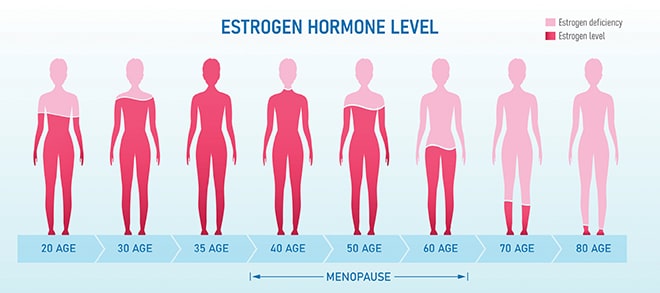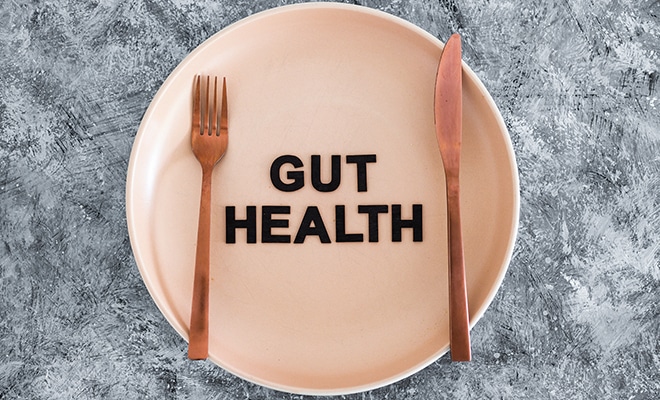Functional Medicine: The Gut & Hormones


By Dr. Cynthia Crosser
Most people are aware that the gut is the home of countless microbes; perhaps 100 trillion bacteria alone. The impact of these bacteria extends well beyond the gut lumen. What many don’t realize is how gut health during perimenopause, which usually begins when a woman is in her 40s and ends when she reaches menopause around age 51, greatly impacts her estrogen levels and, thus, estrogen sensitive tissues.
Our estrogen must be metabolized by the liver and converted into metabolites which are then transformed by a process called methylation. Estrogen is then inactivated and made water-soluble to be excreted by bile into the gut for elimination in the stool. Now here’s where it becomes interesting. Once these estrogen metabolites reach the gut, more than half are returned to the circulation by the gut bacteria. This “estrobolome” helps to balance estrogen in the body, especially in synch with the menstrual cycle.
The estrobolome helps to even out estrogen levels during this time, but imbalanced gut flora can disrupt this which keeps estrogen from recirculating and reduces overall estrogen levels. This imbalance of bacteria called dysbiosis plays a role in symptoms familiar to most women such as hot flashes, insomnia, vaginal dryness, and the acceleration of osteoporosis.
It is important to assist the liver in metabolizing estradiol and estrone to minimize the time the metabolites spend in circulation which reduces the damage to estrogen sensitive tissues. A diet high in fiber such as broccoli, brussel sprouts, cabbage, cauliflower, kale, collards and turnips helps the liver to do this.

Decreases in estrogen and progesterone will decrease the diversity of the gut microbiome. Estrogen favors the growth of good bacteria, so as estrogen declines the shift may be toward harmful bacteria which can lead towards leaky gut or intestinal permeability. This can be seen in increased bacterial vaginosis, yeast infections, and urinary tract infections starting in perimenopause.
A diet that contains the foods that lead to a healthy gut microbiome will help regulate this shift, support gut barrier integrity, as well as a healthy estrobolome and safer circulating estrogen levels. Fiber is essential for maintaining the balance of the estrobolome bacteria, naturally lower estrogen levels, especially estrone, in post-menopausal women by an estimated 47%. Good sources of prebiotic fibers include almonds, bananas, beans, flaxseed, peas, oats, artichokes, leafy greens, and cabbage.
Estrogen metabolism depends on a healthy gut and, if the gut wall is damaged, estrogen can escape into the circulation. Decreasing estrogen levels can cause changes in the gut microbiome which have been linked to weight gain in menopause and perimenopause. Estrogen-related changes in the microbiome are also related to metabolic syndrome, non-alcoholic fatty liver, osteoporosis, and coronary artery disease.
So at least an annual microbiome assessment through a comprehensive stool sample should be done to assess your diversity and types of bacteria, yeast, etc. that may be causing significant disruption not just in digestion, but also creating health challenges throughout the body. A blood test for leaky gut should be part of the picture of your overall health as well. These are foundational to other systems of the body. For more information go to www.crossernaturalhealth.com, or call 302-994-1010.
Wellness within reach!
Pike Creek 302-994-1010
5700 Kirkwood Hwy., Suite 101, Wilmington, DE 19808
www.facebook.com/crossernaturalhealth
www.instagram.com/crossernaturalhealth
Chiropractic, Acupuncture, Weight loss, Neurofeedback, Nutritional Counseling

